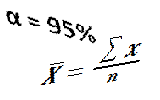Course Content:
Course Objectives:
- Students will identify and describe (using appropriate terminology) types and characteristics of both non-spatial and spatial data, and will demonstrate an ability to collect such data. Assessed via assignments, exams, the major project, and in-class discussions.
- Students will present collected data using appropriate terminology and formats. Assessed via assignments, the major project, and in-class discussions.
- Students will construct hypotheses which call for inferential statistical analysis, and select appropriate statistical tests. Assessed via assignments, exams, the major project, and in-class discussions.
- Students will manage data and conduct statistical tests in a computer context. Assessed via assignments, the major project, and in-class activities.
- Students will draw appropriate conclusions from conducted statistical tests, and clearly present and explain the conclusions. Assessed via assignments, exams, the major project, and in-class discussions.
Session Topics:
- Introduction to Statistics & Geography
- Statistics: Terms & Concepts
- Geographic Data: Measurement
- Geographic Data: Classification & Graphing
- Descriptive Statistics: Central Tendency
- Descriptive Statistics: Dispersion
- Other Descriptive Statistics
- Statistical Probability & Prob. Distributions
- Normal Distribution & Probability Mapping
- Sampling
- Parameter Estimation
- Hypothesis Testing
- One-Sample Tests
- Two-Sample Difference Tests
- Matched Pairs Difference Tests
- 3+-Sample Difference Tests
- Categorical Diff. Tests: Goodness of Fit
- Categorical Diff. Tests: Contingency Tables
- Nearest Neighbor & Quadrat Analyses
- Correlation
- Correlation Issues
- Regression Basics
- Regression Residuals Analysis
- Extensions to Multi-variate Regression
- Course Conclusion
